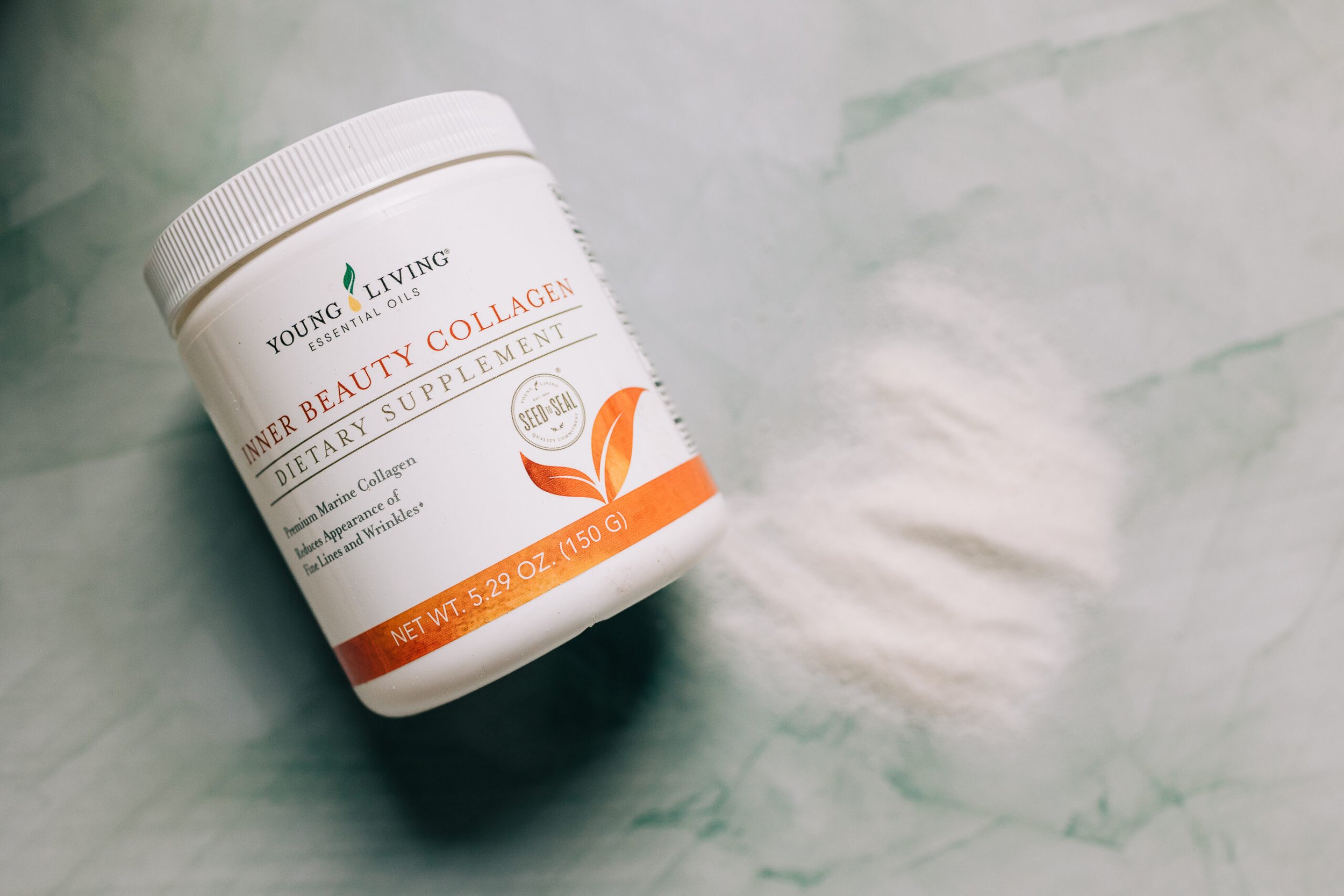The Benefits of Collagen (and the most bioavailable collagen on the market)
I've been working on increasing my protein daily so something I thought of right away was adding in my collagen daily… so I went down the research train to read about collagen and if we can really count it as part of our overall protein for the day…
“does collagen count for my protein intake?”
The answer: collagen can count in your overall protein. However, when we're talking about that 30 grams of complete protein (2.5-3 grams of leucine) needed to trigger muscle protein synthesis, collagen does not count.
Why?
Collagen does not have a complete amino acid profile. It consists primarily of glycine, proline, and hydroxyproline, which are non-essential amino acids glycine, proline, and hydroxyproline, which are beneficial for skin, joint health, and other functions in the body.
When we say “non-essential” it means that your body can produce them on its own.
However, I absolutely DO supplement with collagen and highly recommend it for a number of reasons.
Collagen contributes to a number of functions and processes in the body.
Here are a few:
Boosts metabolism
Supports gut health and improves digestion
Lowering the risk of heart disease
Helps arthritis and supports joints
Can reduce cellulite
Helps with healthier hair and nails
And the list goes on...
Collagen production naturally decreases as we age! Here's a general overview of how collagen production slows down over time:
Age-related Decline: Starting in our late 20s or early 30s, collagen production begins to decline. By the time we reach our 40s, the body produces significantly less collagen than in our younger years.
Reduced Elasticity: As collagen levels decrease, the skin's elasticity diminishes, leading to the formation of wrinkles and fine lines.
Thinning Hair and Brittle Nails: Collagen plays a role in maintaining healthy hair and nails. A decline in collagen production can result in thinning hair and brittle nails.
Joint Health: Collagen is a primary component of cartilage, the tissue that cushions joints. As collagen production slows, joint stiffness, pain, and reduced flexibility can occur.
Bone Density: Collagen also contributes to bone strength and density. A decrease in collagen can lead to weaker bones and an increased risk of fractures.
You can help with collagen production by eating a diet rich in vitamin C, amino acids, and antioxidants, which can collagen synthesis. Foods like berries, citrus fruits, leafy greens, and lean proteins can be beneficial.
I love our marine-based collagen, Inner Beauty Collagen.
Here's why I love it:
Marine collagen is highly bioavailable compared to other types of collagen, such as bovine (cow) or porcine (pig) collagen.
Bioavailability refers to the body's ability to absorb and utilize a substance effectively.
Here are a few reasons why marine collagen is highly bioavailable:
Smaller Peptide Size: Marine collagen typically has a smaller molecular size compared to collagen derived from land animals. This smaller size may enhances absorption in the digestive system, making it more bioavailable.
Similar Structure to Human Collagen: Marine collagen closely resembles human collagen in its amino acid structure, particularly type I collagen, which is abundant in the skin, hair, nails, and bones.
Environmental Factors: The marine environment is less likely to be exposed to hormones, antibiotics, and other contaminants commonly found in land-based animal farming. This cleaner sourcing contributes to a higher quality and more bioavailable collagen product. Inner Beauty Collagen is tested in triplicate for heavy metals and other contaminants.
High Glycine and Proline Content: Like other types of collagen, marine collagen is rich in essential amino acids such as glycine and proline, which play crucial roles in skin, joint, and overall health.
But does it taste like fish?
Nope. Not at all. Completely tasteless and odorless. It completely dissolves in hot or cold liquids with no fish flavor at all.
You can grab Inner Beauty Collagen at the link below!



